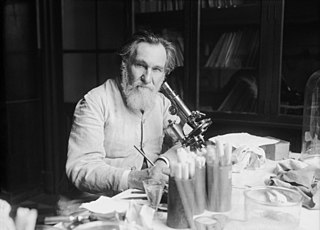Top 16 Quotes & Sayings by Elie Metchnikoff
Explore popular quotes and sayings by a Russian scientist Elie Metchnikoff.
Last updated on April 18, 2025.
The appearance of aged persons is too well known to make detailed description necessary. The skin of the face is dry and wrinkled and generally pale. The hairs on the head and the body are white. The back is bent, and the gait is slow and laborious, whilst the memory is weak. Such are the most familiar traits of old age.





















